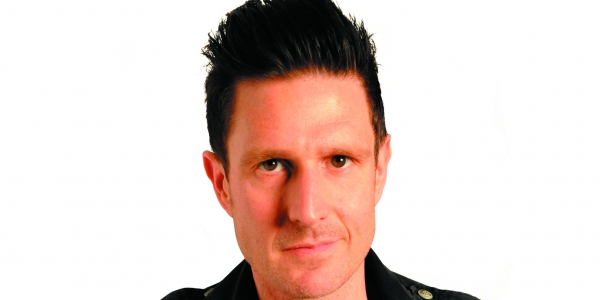Safran is referring to the murder of white supremacist Richard Barrett by 23-year-old African-American Vincent McGee. After finding out about Barrett’s death online, Safran frantically deliberated whether or not to fall further into the rabbit hole, ultimately deciding to seize his “Truman Capote moment”.
“I think what drew me over there was this sense of fate,” he reflects. “Why the hell would this unusual event happen to me? Why would I happen to meet the guy and then he happens to get killed and all this stuff? I kinda felt before I left that there’s a reason why I’m meant to go over there and I’ll work it out once I get there. And then once I got there, I got really obsessed with the world and the town and how it’s this small, enclosed, locked off place filled with bitter, lonely people who all had gripes.
“The thing that was driving me crazy when I was there was I kinda wanted Vincent to cough up what I thought was the truth – which was there was some sort of existing relationship between those two. A lot of the book is me bashing around trying to get someone to cough up the truth.”
Indeed, the rumour that a white supremacist Barrett was secretly gay and in a relationshipwith a black man is exactly the sort of quirky story that Safran seems to attract. The book is filled with trademark Safran wit and intelligence, but his live show adds an extra element that the medium of the novel prohibits.
“It’s a bit of an expansion pack in some ways. You get to see the banned story, that wasn’t shown on the ABC. I play some of the phone calls between me and the killer…but then I tell the story of how I end up there, which is different to the book, really. I talk about my times in Mississippi and it’s got this story arc of beginning, middle and end.
“I did these test shows where I babbled on a bit and you get away with it because the story is about this murder and a white supremacist and I met him and stuff, you can kind of tell the story badly and still get away of it. So I did a few test shows where I told everything that happened and then I realised it wasn’t working so I went back and rewrote it. Now it’s a proper, satisfying story arc and everything like that.”
One of the more ballsy moments of the experience is when Safran admitted to a group of white supremacists in a secluded cabin in the forest that he is in fact Jewish. Whether it’s confronting white supremacists or even the fearsome Ray Martin, Safran has little regard for his own safety, which makes him even more compelling as a true crime writer.
“It’s a bit like when you’re speeding in your car, you’re never processing, ‘Oh I’m gonna be quadriplegic for the next 60 years’…I always just think, ‘Oh you know, I’ll be fine’. Sometimes you feel threatened but it’s usually less obvious things. Like just because the person’s a clansman or something, I almost think, ‘For god’s sake they’re just putting on some theatre’.”
Interestingly, Safran has managed to turn a tale of cold-blooded murder into a comedy show – a testament to not only his style but the audience’s desire to be intrigued rather than just simply entertained.
“I wanna make things interesting rather than funny but I guess because of my style they kind of end up as funny. Even in this show there are bits that are interesting but I don’t think in a needy way, ‘I have to get this laugh at this point’. Because I’ve been gifted with this strange story, it seems to just chug along and have its own energy to it.”

